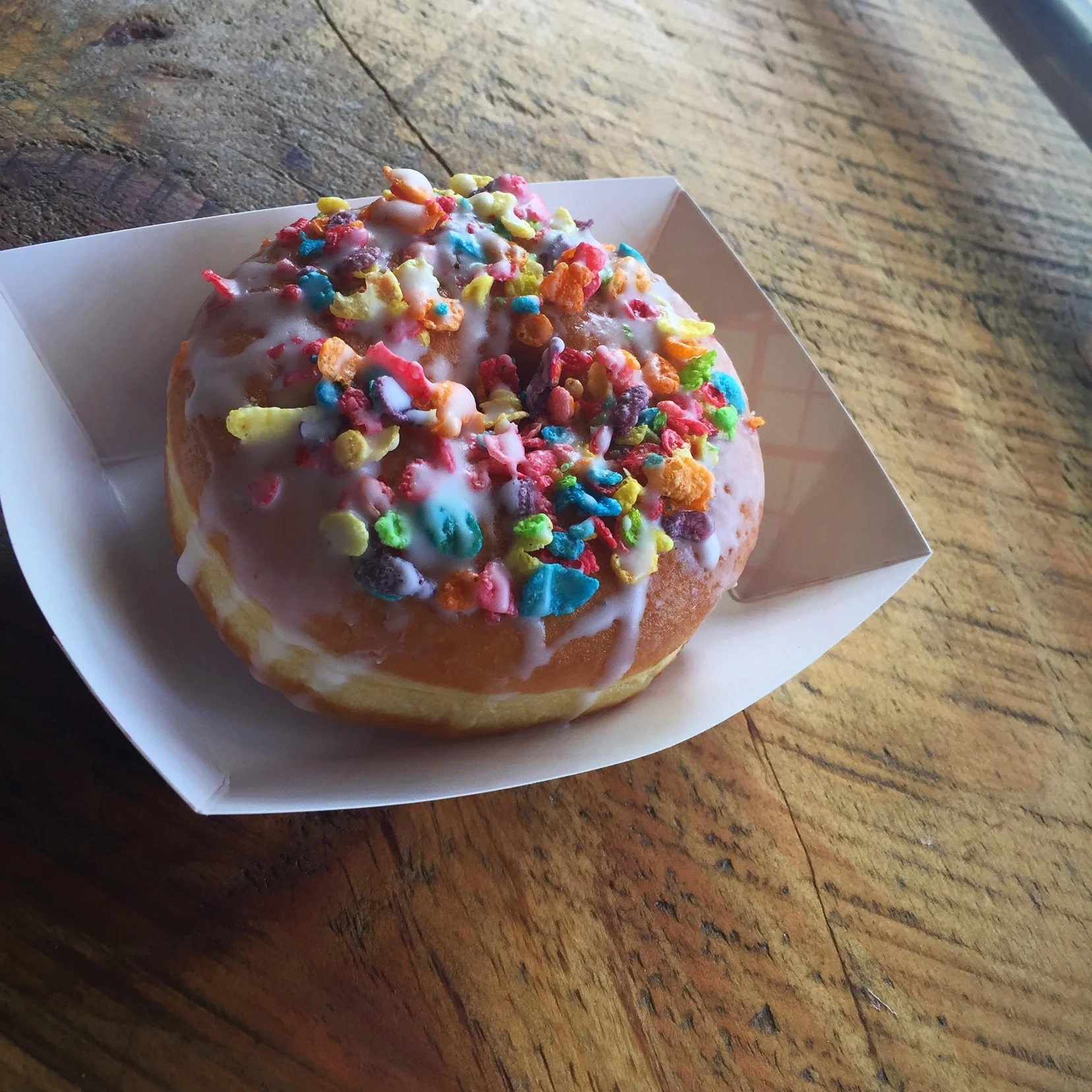I struggled for a long time with late night snacking and uncontrollable cravings. It’s beyond frustrating when you put in all the effort during the week to your workouts and planning healthy meals to end the day in self-sabotage at 9pm because you can’t stop eating.
Identifying your triggers for cravings and over-eating can take time. Think of it as a journey, be patient, listen to your body and never place shame or guilt on yourself. You will get better at managing cravings. The occasional treat (1-2 times a week) will not destroy an entire diet. It’s important to maintain balance and not feel deprived, but also make sure the majority of your diet comes from whole foods.
Why do we get cravings?
Sugar and processed foods. All common foods in the American diet, they lack substantial nutrients and fiber leaving your body feeling deprived. Even artificial zero calorie sweeteners (ex. sucralose, aspartame) will make your cravings worse over time and have negative health impacts.
Lack of sleep. When you don’t get the recommended seven to nine hours of sleep, the hormones that regulate appetite (leptin & ghrelin) become imbalanced and you become hungry, craving foods high in fat and sugar.
Stress. Stress increases cortisol (stress hormone) making you crave foods high in fat and sugar.
Dehydration. Next time you think you’re hungry drink a glass of water and see if the hunger goes away in 15-20 minutes. It’s easy for your brain to confuse dehydration with hunger. When you wake up, drink 2-3 glasses of plain water or hot lemon water.
Dieting. If you don’t eat enough during the day to sustain your body and match your activity levels you will end up deprived and starving for foods high in sugar and fat.
Alcohol. The calories from alcohol are less filling and alcohol increases appetite in some people especially for greasy, higher calorie foods.
Five insider solutions to stop cravings
Exercise. Enjoy a brisk walk outside. Stretch. Foam roll. Do bodyweight exercises like squats and push ups. Exercise releases those feel good endorphins and will instantly elevate your mood.
Prepare. Take Sunday to plan healthy meals you will look forward to. Base your meals around lean protein and vegetables and have snacks like fruit and nuts on hand. By the end of the day, we are frequently stressed, tired, and irritable and our willpower is diminished so we’re likely to give in to cravings. Know and become familiar with your triggers. Do you crave ice cream whenever you watch your favorite TV show? Are you snacking on tortilla chips while you make dinner because you’ve waited too long between meals? Observe your habits and eating patterns and get to know yourself, find the meal plan that works for you and is aligned with your goals.
Get distracted. Read a book of magazine, enjoy a hobby, DIY project, write in a journal, organize your closet, do an at-home beauty treatment. It’s important to create new habits and associations. Doing this creates new patterns in the brain so you’re less likely to engage in nighttime eating.
Relax and go to bed. Reduce stress levels and take deep belly breaths. Light a candle and sip on herbal tea, take a bath, enjoy time with your friends, family or pets. Turn off electronics and get to bed earlier. Enjoy a good night’s sleep and wake up feeling refreshed.
Visualize your dreams. Review your goals and imagine the life and body you want and deserve. If you haven’t already completed goal setting, now is the time. Make a commitment to yourself and to your health. Write your goals down and revisit them each day to remind yourself. If you don’t visualize what life or body you want, you will never get there. It only takes small actions each and every day to achieve your goals. Practicing meditation, yoga and deep breathing are also great for lowering cortisol and other stress hormones.
ADD YOUR NAME AND EMAIL TO START RECEIVING EXCLUSIVE WORKOUTS, RECIPES AND OTHER FITNESS AND NUTRITION TIPS FROM NATASHA STRAIGHT TO YOUR INBOX!
We respect your privacy.

